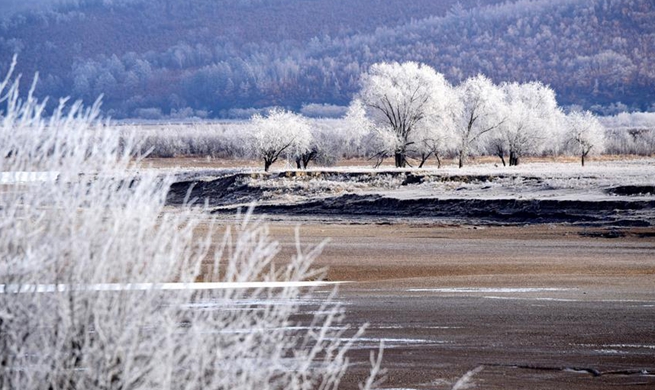ROME, Nov. 6 (Xinhua) -- Chronic undernourishment is on the rise worldwide for the first time in a decade largely due to conflict and climate change, the chief of the United Nations Food and Agriculture Organization (FAO) Sunday told a two-day Group of Seven (G7) health summit in Milan, Italy.
"Unless we take urgent and effective action, more than half of the world's population will suffer from at least one type of malnutrition by 2030," FAO Director-General Jose Graziano da Silva said.
More than 2 billion people around the world suffer from one or more micronutrient deficiencies, da Silva noted.
"About one in three persons globally suffers from at least one form of malnutrition: be it hunger, micronutrient deficiencies, or being overweight and obesity," said the FAO chief.
The meeting in Milan marks the first time FAO has been invited to address health ministers from the G7, as da Silva was the keynote speaker at the two-day summit of health ministers from host Italy and fellow G7 members Canada, France, Germany, Japan, the U.S., and Britain.
The FAO data are backed up by the World Health Organization (WHO) Global Nutrition Report 2017, which said almost every country in the world now faces a nutrition-related challenge.
The report found that 155 million children under 5 years old are stunted, and 52 million children worldwide are defined as wasted, meaning they don't weigh enough for their height.
The report issued at one of four side events to the G7 health summit calls for nutrition to be placed at the heart of efforts to fight disease and tackle climate change.
Italian Health Minister Beatrice Lorenzin said in a statement that the summit would focus on the impact of climate change on the health of people and animals.
Increasingly frequent extreme climate events such as heat waves, drought, torrential rainfall and floods "will significantly affect human beings and the animals on which many of us depend, driving up to 10 million people from their homes", according to the minister.
The number of vulnerable people exposed to heat waves has grown by 125 million between 2000 and 2016, according to data cited by Italian news agency ANSA.
Another item on the agenda is the spread of diseases due to climate change, such as the appearance of the Chikungunya virus in Italy.
The first European outbreak of this virus, which is spread by mosquito bites and causes acute fever and joint pain, was in Italy's Emilia Romagna region in 2007, according to the World Health Organization (WHO).
Italy is the duty president of the G7 this year.
















